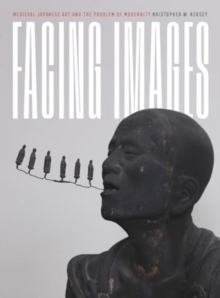
Decorative Arts of the Tunisian Ecole : Fabrications of Modernism, Gender, and Power Hardback
by Jessica (Assistant Professor of African and African-American Studies, University of Kans Gerschultz
Part of the Refiguring Modernism series
Hardback
Description
The arts drove a seismic cultural shift in mid-twentieth-century Tunis, as women entered ateliers and workshops previously dominated by men and as collaborations across art schools destabilized the boundary between art and craft.
This volume uses the “Tunisian École”—a configuration of artists, art students, professors, and artisans from the Tunis School, the School of Fine Arts, and the National Office of Handicraft engaged in the unity of “fine” and “decorative” art—to explore the ways in which these forces reworked colonial concepts to reimagine artistic categories and integrate feminized art forms in a program of social uplift. Focusing on the gendering of tapestry and “decorative” arts, Jessica Gerschultz investigates how art and feminism were entwined with socialist modernizing projects, from the relationship between Tunisian nationalist discourses and the figure of the woman artist to the role of art education and industry in transforming and institutionalizing hierarchies among women.
In doing so, she positions women’s weaving in the context of state feminism and Tunisian socialism, arguing that a shared aesthetic and political philosophy oriented toward female creativity not only underpinned multiple forms of art and textile production but also stood as a potent metaphor for statecraft. Important and wholly original, this study of the artist-as-craftsperson, told from the standpoint of artists in an Arab African country, recuperates a feminized, marginalized category within aesthetic modernism and furthers our understanding of the relationships among labor, gender, and artistic and creative practices in modern Tunisia.
Information
-
Available to Order - This title is available to order, with delivery expected within 2 weeks
- Format:Hardback
- Pages:272 pages, 42 Halftones, color; 79 Halftones, black and white
- Publisher:Pennsylvania State University Press
- Publication Date:31/10/2019
- Category:
- ISBN:9780271083186
Information
-
Available to Order - This title is available to order, with delivery expected within 2 weeks
- Format:Hardback
- Pages:272 pages, 42 Halftones, color; 79 Halftones, black and white
- Publisher:Pennsylvania State University Press
- Publication Date:31/10/2019
- Category:
- ISBN:9780271083186










